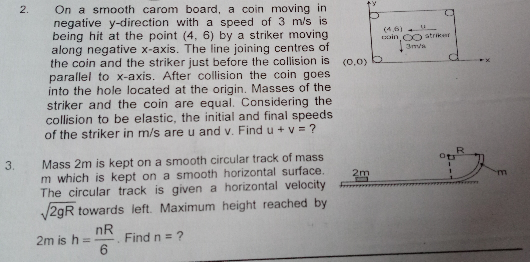
AllQuestion and Answers: Page 1877
Question Number 22679 Answers: 0 Comments: 3
Question Number 22678 Answers: 0 Comments: 0
Question Number 22661 Answers: 1 Comments: 1

Question Number 22657 Answers: 0 Comments: 0
Question Number 22652 Answers: 0 Comments: 0
Question Number 22649 Answers: 1 Comments: 1

Question Number 22635 Answers: 1 Comments: 0
Question Number 22625 Answers: 0 Comments: 2
Question Number 22624 Answers: 1 Comments: 0
Question Number 22623 Answers: 1 Comments: 0
Question Number 22621 Answers: 0 Comments: 0
Question Number 22618 Answers: 1 Comments: 0
Question Number 22640 Answers: 0 Comments: 0
Question Number 23796 Answers: 1 Comments: 0
$$\int\frac{\mathrm{2sinx}+\mathrm{3cosx}}{\mathrm{3sinx}+\mathrm{4cosx}}\:\mathrm{dx} \\ $$
Question Number 23793 Answers: 1 Comments: 1

Question Number 22598 Answers: 0 Comments: 4
Question Number 22594 Answers: 1 Comments: 0
Question Number 22599 Answers: 0 Comments: 5

Question Number 22612 Answers: 2 Comments: 0
Question Number 22582 Answers: 1 Comments: 2
Question Number 22576 Answers: 1 Comments: 1

Question Number 22574 Answers: 1 Comments: 1
Question Number 22562 Answers: 0 Comments: 0
Question Number 22561 Answers: 1 Comments: 0
Question Number 22547 Answers: 1 Comments: 0
Question Number 22545 Answers: 2 Comments: 0
Pg 1872 Pg 1873 Pg 1874 Pg 1875 Pg 1876 Pg 1877 Pg 1878 Pg 1879 Pg 1880 Pg 1881
